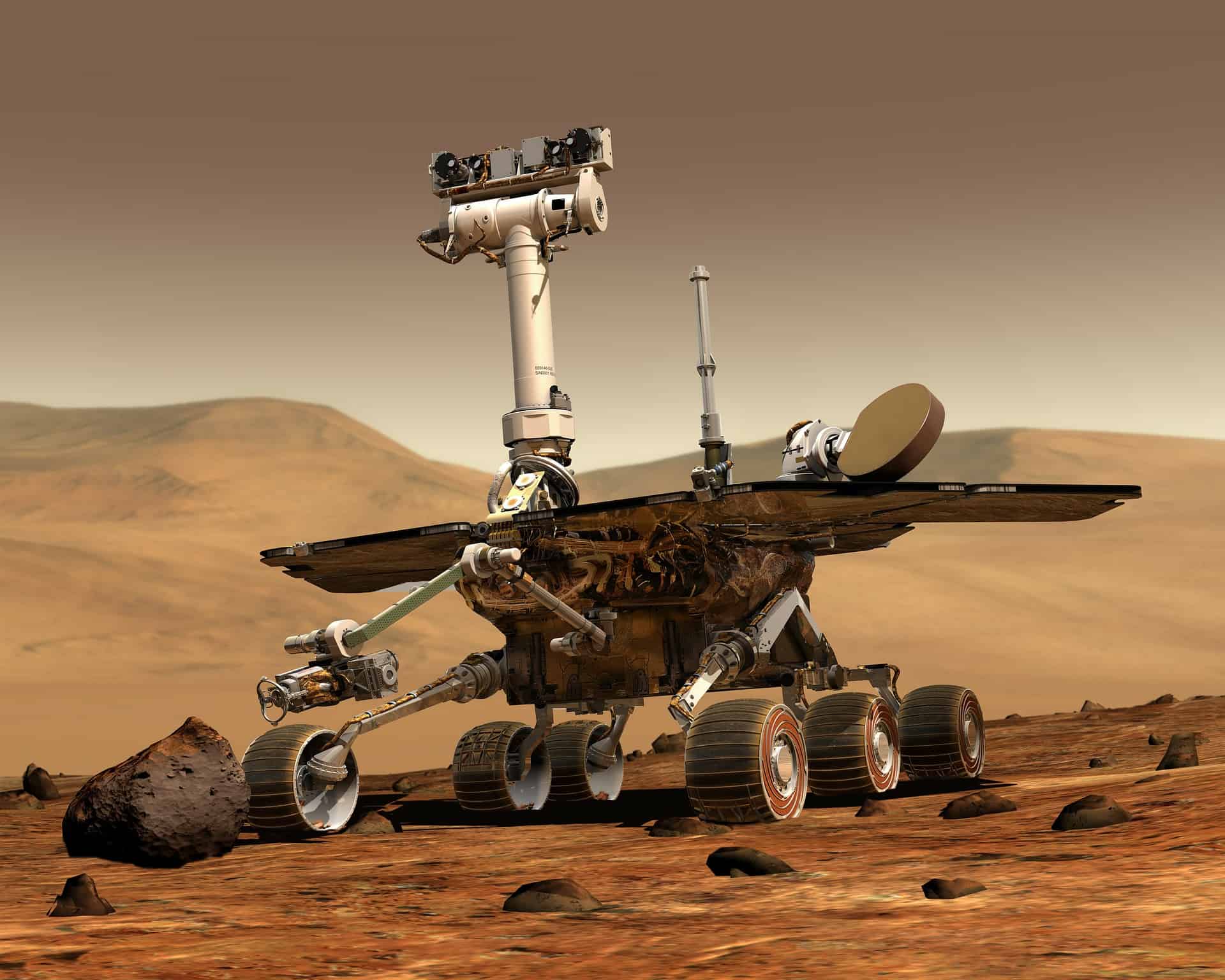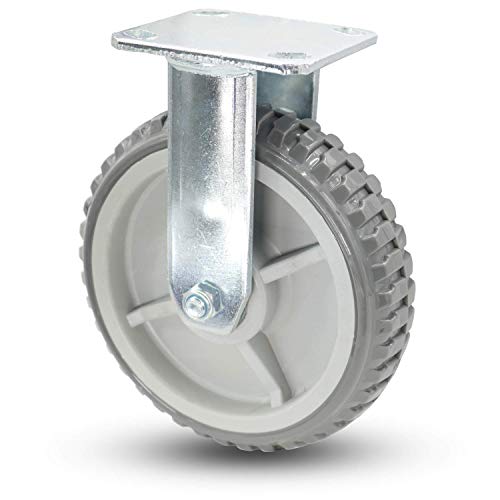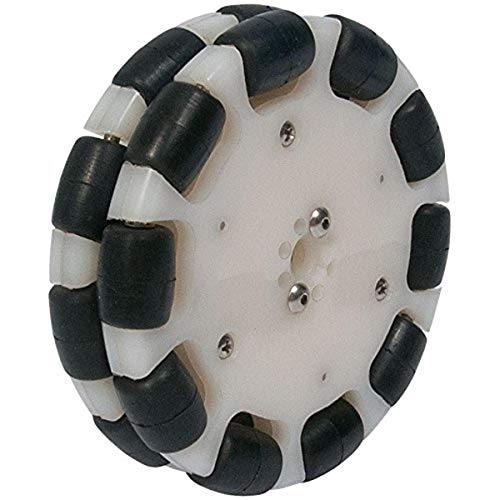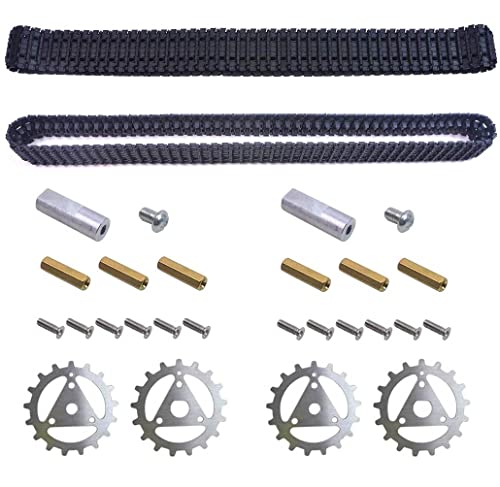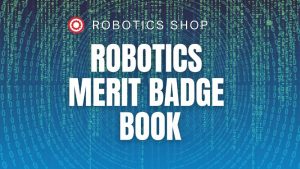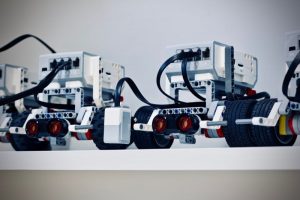There are many different types of wheels used in robotics. Standard fixed wheels and caster wheels are some of the most common options. While more advanced Omni Wheels allow for a greater range of directional control and translational movement.
If you want to know more about robot wheels you can learn more about each type of wheel in the following article.
Robot Wheels

Wheels are one of the most practical means of robot locomotion. Robots with legs might look interesting, but they lack the flexibility and efficiency of a wheeled robotics platform. Wheels are also easy to integrate into any type of robot design with minimal engineering effort. It’s also far simpler to program a wheeled robot since they don’t require complex motion planning algorithms.
Types of Robot Wheels
Standard Fixed Wheel
Fixed Wheels (Buy Online) have two degrees of freedom and can move a robot backward and forward. These wheels are commonly used as drive wheels on a rear-wheel or four-wheel drive robot.
Fixed wheels can be used for steering by using independently controlled wheel motors. They can also be attached to a rack and pinion system to steer a robot without using independently controlled motors.
Orientable Wheel
Orientable Wheels are generally used to stabilize and robot, and some of them allow for a tighter turning radius since rotate around their Z-axis. These types of wheels are similar to the types of wheels on the front of a grocery cart. Which as most people know are one of the least precise wheels you can imagine.
Centered Orientable Wheel
A Centered Orientable Wheel (Buy Online) has a vertical axle that directly connects to the wheel. This wheel design is simple to integrate into most robot designs, and it delivers predictable motion characteristics along with static stability.
Off-Centered Orientable Wheel
Off-Centered Orientable Wheels (Buy Online) are slightly different than the centered orientable wheel. The primary difference is that the axle’s vertical axis is slightly off-centered.
Off-Centered wheels can also have 360-degree swivel joints that allow the wheel to rotate freely when a robot is in motion. However, swivel wheels can suffer from wheel flutter which can lead to instability issues and control problems.
Ball Wheel
Ball Wheels (Buy Online) are one of the simplest types of wheels used in robotics. These wheels are made up of either a metal or nylon ball mounted in a holder. The ball has 360-Degrees of freedom and they are usually just used to balance a robot.
Ball wheel’s major disadvantage is that they have a high rolling resistance along with poor traction. They also don’t do well on uneven terrain, and they are prone to jamming when used on dusty or dirty surfaces.
Omni Wheels
Omni Wheels (Buy Online) are the best type of robot wheel if you plan on building a robot that needs to quickly move in all directions. These wheels are made up of multiple roller wheels mounted around their circumference. The rollers on Omni wheels allow them to move forward, backward, and sideways. Omni wheels are also very efficient since they exhibit very low rolling resistance.
Types of Wheels Used in Robotics
Mecanum Wheels vs Omni Wheels
Mecanum Wheels
Mecanum Wheels (Buy Online) are a type of Omni wheel that have rollers attached to the center spoke at a 45-degree angle. This configuration allows for faster dynamic motion in every direction.
This is especially true for lateral motion since the rollers on Mecanum wheels are designed to quickly and efficiently transfer forward wheel spin into sideways motion.
Mecanum Omnii wheels also have the advantage of working for both driving and steering since the wheels can be mounted facing in the same direction.
Omni Wheels
Omni Wheels (Buy Online) are also known as Swedish wheels and they can function as drive wheels, or they can be used to steer a robot. Standard Omni wheels one primary drawback is that they need to be oriented in a different direction than the drive wheels to allow the rollers to steer the robot.
Omni Wheel Robot Platform
Moebius Metal Mecanum Omni Wheel Robot Car Kit
The Moebius Metal Mecanum Omni Wheel Robot Car Kit (Buy Online) is a Raspberry Pi compatible robot platform. It has a 33 pound (15kg) load capacity and it has a durable aluminum chassis. It also comes with four 7-watt 12-volt motors that enable it to travel at a top speed of 2.7 mph (1.2 m/s).
Features:
Aluminum Alloy Frame
Aluminum Mecanum wheels
12V DC motors with encoders
Robot Tracks
Robot Tracks (Buy Online) are an excellent alternative to wheels for a robot that needs to navigate rough uneven terrain. Robot tracks also work well on soft surfaces like sand or snow since they evenly distribute the weight of a robot.
Tracked robots also can climb up steep vertical grades, and they can even handle stairs with certain track configurations.
You can get Tracked Robot Platforms (Buy Online) or you can add tracks to a preexisting robot with minor mechanical modifications.
Table of Contents

